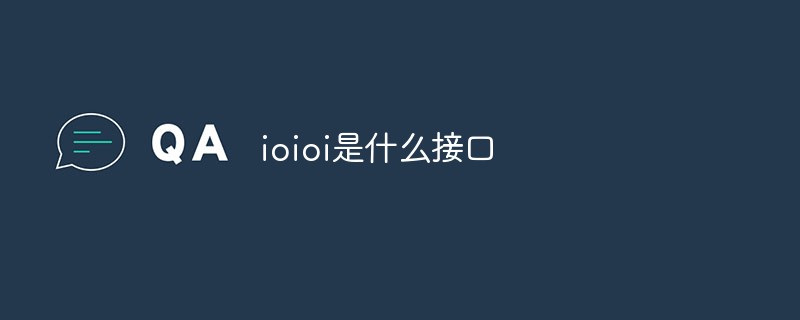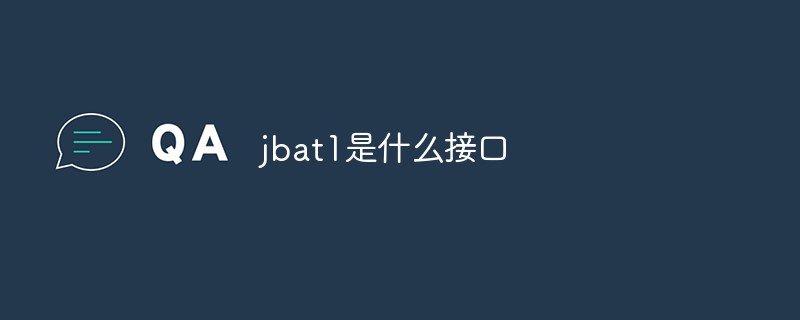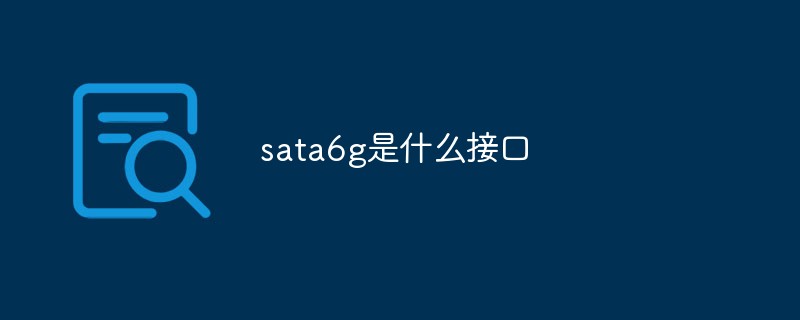
How to use interfaces to achieve polymorphism in Golang
In Golang, interface is a powerful feature that can achieve polymorphism, that is, an object can be Presented in different forms. Using interfaces to achieve polymorphism can improve the scalability and maintainability of your code. This article will explain how to use interfaces to achieve polymorphism in Golang by introducing the definition of interfaces, implementation of interfaces, and examples of polymorphism.
Definition of interface
In Golang, an interface is a collection of methods. An interface defines the signature of a collection of methods, not the implementation. The definition of the interface generally uses the type and interface keywords, for example:
type Animal interface {
Eat()
Sleep()
}The above code defines an Animal interface, which contains two methods: Eat() and Sleep().
Implementation of interface
To implement an interface, you need to define an entity type for it and implement the methods defined in the interface for the entity type. Entity types need to meet the method signature requirements of the interface, that is, have all methods defined by the interface. The following code demonstrates how to implement the Animal interface:
type Dog struct {
name string
}
func (d Dog) Eat() {
fmt.Println(d.name, "is eating")
}
func (d Dog) Sleep() {
fmt.Println(d.name, "is sleeping")
}In the above code, we define a Dog structure, which contains an attribute named name. Then, we defined two methods, Eat() and Sleep(), for the Dog type, implementing the methods defined by the Animal interface.
Implementation of polymorphism
Using the polymorphism of the interface, we can realize that the same interface is called by different entity types. The following code shows how to use the polymorphism of the interface:
func Action(a Animal) {
a.Eat()
a.Sleep()
}
func main() {
dog := Dog{name: "旺财"}
Action(dog)
}In the above code, we define an Action() function that receives a parameter of Animal interface type. The interface methods Eat() and Sleep() are called in the Action() function. In the main function, we create an instance of Dog type dog and pass it as a parameter to the Action() function. Since the Dog type implements the methods of the Animal interface, the Action() function can be called successfully.
By running the above code, we can see the following output:
旺财 is eating 旺财 is sleeping
The above output shows that the Dog type instance dog successfully called the Eat() and Sleep() methods of the Animal interface. Polymorphism is implemented between different entity types.
Summary
Through the definition, implementation and polymorphism examples of interfaces, we show how to use interfaces to achieve polymorphism in Golang. Interfaces allow different entity types to call the same interface type, thereby improving the scalability and maintainability of the code. Using interfaces, we can write more flexible and efficient code.
The above is the detailed content of Methods and uses of polymorphism in Golang. For more information, please follow other related articles on the PHP Chinese website!
 主板aafp是什么接口Aug 29, 2022 am 10:50 AM
主板aafp是什么接口Aug 29, 2022 am 10:50 AM主板上的aafp是音频接口;该接口的功能是启用前面板的“3.5mm”插孔,起到传输音频的作用,aafp跳线基本上由两个部分组成,一部分是固定在主板、硬盘等设备上的,由两根或两根以上金属跳针组成,另一部分是跳线帽,是一个可以活动的组件,外层是绝缘塑料,内层是导电材料,可以插在跳线针上。
 cha fan表示什么风扇Sep 15, 2022 pm 03:09 PM
cha fan表示什么风扇Sep 15, 2022 pm 03:09 PM“cha fan”表示的是机箱风扇;“cha”是“chassis”的缩写,是机箱的意思,“cha fan”接口是主板上的风扇供电接口,用于连接主板与机箱风扇,可以配合温度传感器反馈的信息进行智能的转速调节、控制噪音。
 ioioi是什么接口Aug 31, 2022 pm 04:50 PM
ioioi是什么接口Aug 31, 2022 pm 04:50 PMioioi是指COM接口,即串行通讯端口,简称串口,是采用串行通信方式的扩展接口。COM接口是指数据一位一位地顺序传送;其特点是通信线路简单,只要一对传输线就可以实现双向通信(可以直接利用电话线作为传输线),从而大大降低了成本,特别适用于远距离通信,但传送速度较慢。
 link/act是什么接口Feb 23, 2023 pm 04:14 PM
link/act是什么接口Feb 23, 2023 pm 04:14 PMlink/act是物理数据接口;交换机上的link/act指示灯表示线路是否连接或者活动的状态;通常Link/ACT指示灯用来观察线路是否激活或者通畅;一般情况下,若是线路畅通,则指示灯长亮,若是有数据传送时,则指示灯闪烁。
 jbat1是什么接口Jun 23, 2021 pm 01:38 PM
jbat1是什么接口Jun 23, 2021 pm 01:38 PMjbat1是主板电2113池放电跳线接口,对于现在市面上常见的主板来说,它们都设计有CMOS的放电跳线,让用户在操作时更加便捷,它也因此成为了CMOS最常见的放电方法。
 sata6g是什么接口Sep 14, 2022 am 11:46 AM
sata6g是什么接口Sep 14, 2022 am 11:46 AMsata6g是数据传输速度为“6G/s”的sata接口;sata即“Serial ATA”,也就是串行ATA,是主板接口的名称,现在的硬盘和光驱都使用sata接口与主板相连,这个接口的规格目前已经发展到第三代sata3接口。
 dc接口是什么意思Aug 24, 2022 am 10:47 AM
dc接口是什么意思Aug 24, 2022 am 10:47 AMdc接口是一种为转变输入电压后有效输出固定电压接口的意思;dc接口是由横向插口、纵向插口、绝缘基座、叉形接触弹片、定向键槽组成,两只叉型接触弹片定位在基座中心部位,成纵横向排列互不相连,应用于手机、MP3、数码相机、便携式媒体播放器等产品中。
 pump fan是什么接口Jun 25, 2021 pm 02:55 PM
pump fan是什么接口Jun 25, 2021 pm 02:55 PMpump fan是散热风扇接口。主板上的风扇接口有cpu fun、sys fun、pump fun,对于一般普通用户来说区别不大,一般接哪个都行,而pump fun上的电流更大一点,用于接功率大一点的水冷风扇头。


Hot AI Tools

Undresser.AI Undress
AI-powered app for creating realistic nude photos

AI Clothes Remover
Online AI tool for removing clothes from photos.

Undress AI Tool
Undress images for free

Clothoff.io
AI clothes remover

AI Hentai Generator
Generate AI Hentai for free.

Hot Article

Hot Tools

ZendStudio 13.5.1 Mac
Powerful PHP integrated development environment

mPDF
mPDF is a PHP library that can generate PDF files from UTF-8 encoded HTML. The original author, Ian Back, wrote mPDF to output PDF files "on the fly" from his website and handle different languages. It is slower than original scripts like HTML2FPDF and produces larger files when using Unicode fonts, but supports CSS styles etc. and has a lot of enhancements. Supports almost all languages, including RTL (Arabic and Hebrew) and CJK (Chinese, Japanese and Korean). Supports nested block-level elements (such as P, DIV),

SecLists
SecLists is the ultimate security tester's companion. It is a collection of various types of lists that are frequently used during security assessments, all in one place. SecLists helps make security testing more efficient and productive by conveniently providing all the lists a security tester might need. List types include usernames, passwords, URLs, fuzzing payloads, sensitive data patterns, web shells, and more. The tester can simply pull this repository onto a new test machine and he will have access to every type of list he needs.

WebStorm Mac version
Useful JavaScript development tools

DVWA
Damn Vulnerable Web App (DVWA) is a PHP/MySQL web application that is very vulnerable. Its main goals are to be an aid for security professionals to test their skills and tools in a legal environment, to help web developers better understand the process of securing web applications, and to help teachers/students teach/learn in a classroom environment Web application security. The goal of DVWA is to practice some of the most common web vulnerabilities through a simple and straightforward interface, with varying degrees of difficulty. Please note that this software







